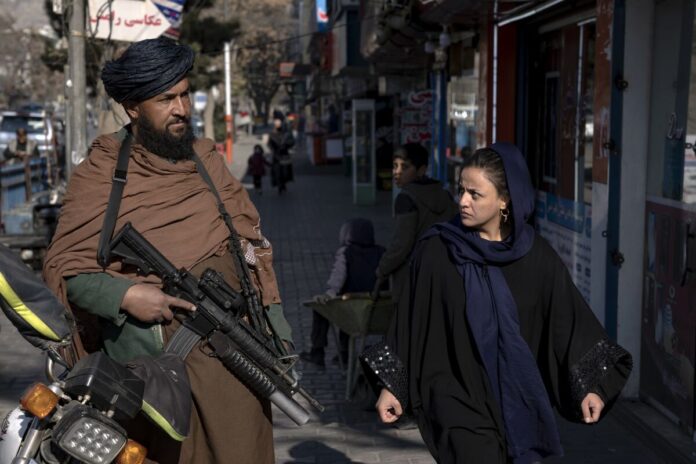ISLAMABAD (AP) – A UN report on Monday accused the Taliban of carrying out public executions, floggings and stonings in Afghanistan since it came to power and called on the country’s rulers to end such practices.
The United Nations Assistance Mission in Afghanistan (UNAMA) reported that in the past six months alone, 274 men, 58 women and two boys were flogged in Afghanistan.
Monday’s corporal punishment report chronicled practices before and after the Taliban returned to power in August 2021. In August 2021, the Taliban occupied the capital Kabul as the US and his NATO forces withdrew after his 20-year war.
The first public flogging after the Taliban takeover was reported in October 2021 in the northern province of Kapisa, the report said. In that case, women and men convicted of adultery were each publicly flogged 100 times before religious scholars and local Taliban authorities, sources said.
In December 2022, Taliban authorities executed an Afghan convicted of murder.
The execution, carried out by the victim’s father with an assault rifle, took place in western Farah province in front of hundreds of spectators and senior Taliban officials. The government’s top spokesman, Zabihula Mujahid, said the decision to carry out the punishment was “taken very carefully” after being endorsed by the country’s three highest courts and by the Taliban’s Supreme Leader Mullah Hibaturah Akunzada.
The number and regularity of judicial corporal punishment has increased significantly since November, when Mujahid tweeted repeated comments by judges and the supreme leader about the application of Islamic law, the report said.
Since that tweet, UNAMA has documented at least 43 public flogging incidents involving 274 men, 58 women and two boys. The majority of the sentencing were related to adultery and “runaway” convictions, reports said. Other suspected offenses included theft, homosexuality, alcohol consumption, fraud and drug dealing. In a video message last week, Taliban-appointed deputy chief Abdul Malik Haqqani said the Taliban Supreme Court had handed down 175 so-called reprisal rulings, including 79 floggings and 37 stonings, since it took power.
Such judgments establish the right of the alleged victim of crime or the relatives of the victim of crime to punish or forgive the offender. Haqqani said the Taliban leadership was determined to carry out such sentences.
After first collapsing in the 2001 US invasion, the Taliban reportedly continued to carry out corporal punishment and executions in areas under their control during an uprising against the US-backed former Afghan government.
UNAMA has documented at least 182 cases of the Taliban enforcing their sentences during the height of his 2010 to August 2021 riots, in which 213 people were killed and 64 injured. . Many Muslim-majority countries rely on Islamic law, but the Taliban’s interpretation is unusual.
UN Secretary-General António Guterres has called for the Taliban to ban women from working as an unacceptable violation of human rights in Afghanistan.
On April 5, Afghan Taliban rulers informed the United Nations that Afghan women employed on UN missions could no longer report to work. Aid organizations warn that banning women from working will affect their ability to provide emergency humanitarian aid in Afghanistan.






